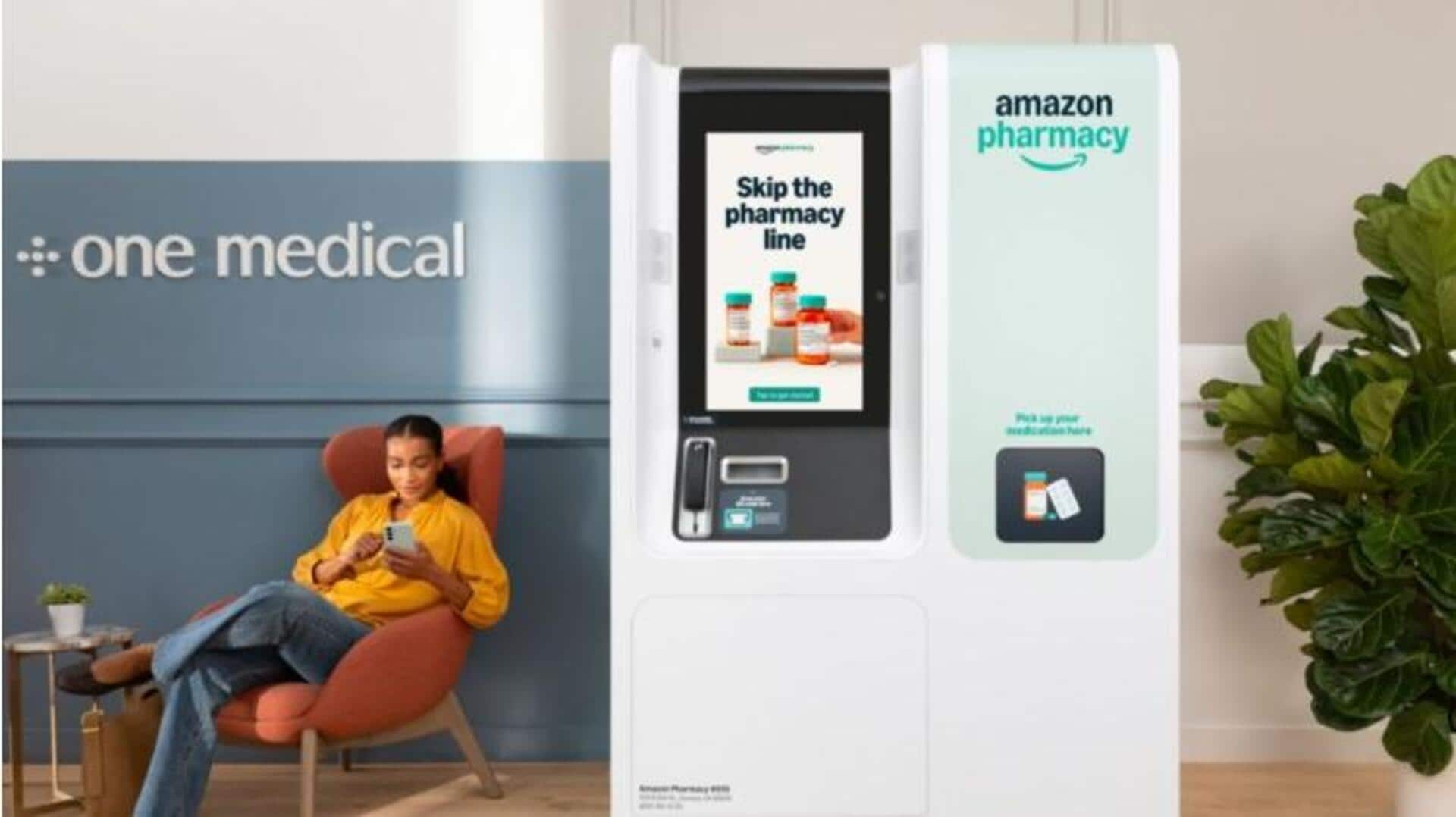
You can soon buy prescription drugs from Amazon's vending machines
What's the story
Amazon is set to revolutionize the way people access their medications by introducing vending machines stocked with prescription drugs. The first of these innovative "Amazon Pharmacy" kiosks will be installed at One Medical clinics in Los Angeles starting December. The move is part of a larger plan to make healthcare more accessible by reducing prescription delays for patients across the US.
Prescription access
What medications will be available?
The Amazon Pharmacy kiosks will provide a variety of common prescriptions, including antibiotics, inhalers, and blood pressure medication. However, it's important to note that not all medications will be available at these vending machines. The specific inventory for each kiosk will depend on the "prescribing patterns of each office location," and controlled substances or refrigerated medications won't be dispensed through them.
Convenience factor
How it works
The primary goal of these vending machines is to make it easier for people to collect their medications. This would eliminate the need for a trip to a dedicated pharmacy, thus reducing delays and unfilled prescriptions. Patients can opt to have their prescriptions sent directly to an Amazon Pharmacy for pick-up at in-office kiosks, where they are verified by one of the company's pharmacists.
User experience
'Removing critical barrier'
Once the prescription is verified, patients can use a QR code on the Amazon mobile app to check out and collect their drugs "in minutes." This new system hopes to tackle the problem of unfilled prescriptions by bringing the pharmacy directly to where patients are treated. "By bringing the pharmacy directly to the point of care, we're removing a critical barrier," said Hannah McClellan, President of Operations at Amazon Pharmacy.
Support services
Consultations available too
Along with quick access to medications, the Amazon Pharmacy kiosks will also provide phone and video consultations with the company's pharmacy team. This way, patients can get answers to their queries about their medications "just as they would at a traditional pharmacy counter," McClellan said. The move comes as brick-and-mortar pharmacies in the US face stiff competition and declining drug margins.